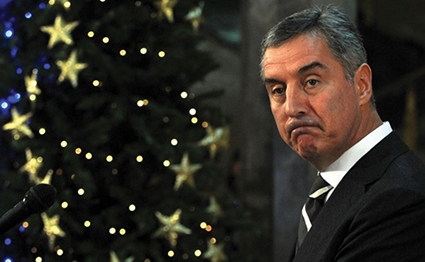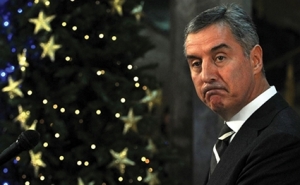Georgia Still Waiting, Did Montenegro Do Better?
On Wednesday, Foreign Ministers of NATO countries, following on from a Ministerial, released a statement concerning the Alliance’s Open Door policy.
The declaration says that at the 2008 Bucharest Summit, NATO agreed that Georgia will become a member of NATO with MAP as an integral part of the process: “Today we reaffirm all elements of that decision, as well as subsequent decisions. We welcome the significant progress realized since 2008. Georgia’s relationship with the Alliance contains all the practical tools to prepare for eventual membership.”
According to the statement, the Alliance welcomes the important progress made in implementing the Substantial NATO-Georgia Package, including the start of joint exercises, and the inauguration of the Joint Training and Evaluation Center which helps strengthen Georgia’s self-defense and resilience capabilities.
NATO said it remains committed to the Open Door policy, a founding principle of the Washington Treaty. And, as a result of that principle, NATO has now formally invited Montenegro to join the military alliance as its 29th member.
It is the first expansion of NATO in six years and has already prompted a backlash from Russia, who calls the move a threat to their own national security.
“Moscow has always noted at various levels that the continuing expansion of NATO and NATO’s military infrastructure to the East can only lead to responsive actions from the East, namely from the Russian side, in ensuring security interests and supporting the parity of interests,” Dmitry Peskov Kremlin spokesman stated, according to the TASS news agency.
The decision to let Montenegro in, described by NATO Secretary General Jens Stoltenberg as “historic”, comes 16 years after the alliance bombed Montenegro during the Kosovo war, when it was still part of Yugoslavia.
Stoltenberg announced the invitation of Wednesday, the culmination of a process that began in 2009. The mountainous Adriatic state, with only 650,000 people has a very small military of around 2000 active members.
Accession talks are expected to take about a year to complete.
Montenegro already supports NATO’s efforts in Afghanistan and has actively cooperated with the alliance in other ways.
NATO expects Montenegro to make progress on reforms “especially in the area of rule of law.”
Apart from Montenegro, three other countries are partnering with NATO and are interested in becoming members: Georgia, Bosnia and Herzegovina and Macedonia.
Georgian experts assessed the declaration positively; however, recent developments on media freedom (Rustavi 2 case) and rule of law, which were included in the statement, are considered as part of the government’s instability in terms of democratic advancement. The experts emphasized that the government should act meticulously not to damage the democratic principles and give fuel to some Georgia-sceptic members of NATO.
Last week Reuters published an article concerning Georgia’s hopes and the existing situation in NATO to grant Georgia membership.
“NATO allies are split over what message to send Georgia over its long-delayed membership bid, diplomats said, with some European capitals arguing the alliance would be unable to defend the ex-Soviet state in the event of a conflict with Russia,” the publication reads.
The Georgian Prime Minister, following his visit to Paris this week, stated that the Government of Georgia does not want to create any special expectations regarding NATO. Garibashvili said that this message comes on the specific recommendation of the Alliance Secretary General and partner countries.
Zviad Adzinbaia












